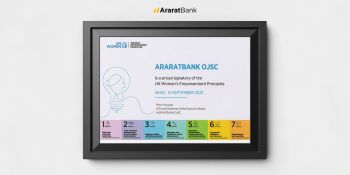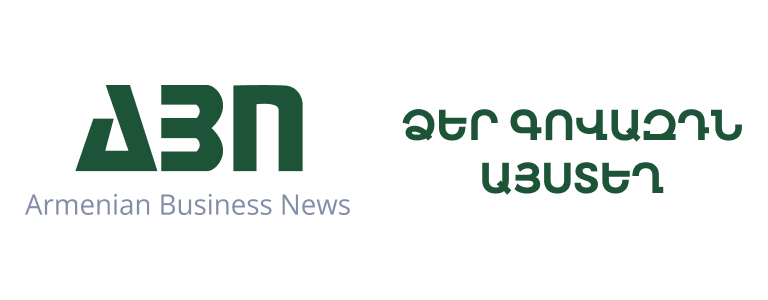Why billionaires are approaching the end of the world and what society can learn from them
Analysis |

Preparations for the "end of the world" among the technological elite are gaining new momentum: rapid developments in artificial intelligence simultaneously fuel both "existential" fears and technological utopianism. On one side—bunkers, reserves, dual citizenship, and the search for "safe havens," on the other—promises that machine intelligence will cure diseases and save the climate. In between lies the most important aspect—the social, economic, and institutional risks and opportunities that must be assessed soberly, without noise.
Why billionaires are preparing for "indifferent apocalypse"
Leaders of technology companies are typically strategic thinkers: they plan for worst-case scenarios regardless of their likelihood. The creation of legal possibilities for bunkers, reserves, and alternative living arrangements is often an insurance logic, not just fear. But when this behavior coincides with hyperbolic predictions around AI, it influences the public agenda by increasing distrust and polarization.
Discussions about AI often mix at least three different levels of risks.
Technical and safety
These are related to the controllability of models, the spread of errors, the limits of safe use, and the prevention of harmful applications. Weak baseline protections, inadequate testing, and lack of accountability mechanisms can lead to widespread harm.
Social and informational
Generative tools increase the ease of producing fake images, voices, and videos. When the boundaries between digital and real content become blurred, public trust in institutions and media can decline. This is particularly dangerous during sensitive electoral, health, or financial moments.
Economic and labor market
Automation is changing the nature of work: some functions are being replaced, while new ones have not yet been developed on a large scale. As a result, skill gaps arise, risks of income inequality deepen, and regional economic disparities emerge.
Ecological
The training and operation of large models are energy-intensive and require significant computational infrastructure. If policies and markets do not encourage efficiency and the use of renewable energy, the carbon footprint will increase.
Artificial public: relationships with people and "assistants"
The spread of chatbots and "emotional" companions has a profound impact on interpersonal relationships. Some users develop forms of dependency, blurred boundaries, and detachment from real relationships. In health, education, and social sectors, this requires clear guidelines on
what experiences are considered beneficial, where the obvious harms lie, what mechanisms are needed to prevent abuses, how access for minors is regulated, and data security.
Bunker culture and public trust
When influential actors publicly prepare for the "worst," society may receive the wrong signal, believing that collapse is inevitable or already underway. This undermines the will to seek collaborative solutions. Restoring trust requires a counter approach—transparency, accountability, and public participation in technological decisions.
Governance and rules: what brings the conversation down to earth
An effective policy package regarding AI could include the following directions:
Transparency and accountability
Minimum standards for explainability, independent centers for safety testing, mandatory impact assessments for high-risk applications, clear accountability chains throughout the supply cycle.
Data and copyright protection
Verification of the legality of training data, fair compensation mechanisms for creators, protection of individual privacy, and enforcement of rights without unnecessary bureaucracy.
Protection of public spaces from misinformation
Stricter checks on electoral and public health topics, mandatory disclosures for generative content, joint response protocols of global platforms during crisis moments.
Energy efficiency and green incentives
Energy-saving standards for data centers, quotas for the use of renewable sources, incentives for technological competitions for effective algorithms and equipment.
Labor market adaptability
Rapid retraining programs, modern social security tools, tax and financial incentives for businesses in exchange for training workers in new skills, as well as support for the digitization of small businesses.
Strategic steps for businesses
When integrating AI into work processes, it is important to follow the principle of "security by design": establish internal regulations, maintain customer data protection, implement content verification layers, and have a clear incident response plan. At the same time, leaders should implement people-centered change management by retraining teams and preventing the spread of "fear-driven" solutions.
The role of media and public literacy
Public perception is influenced not only by what technology creates but also by how the media presents it. Educational programs should strengthen digital and media literacy, differentiate generative content, understand signs of credibility, and cultivate a culture of responsible use.
The perspective of Armenia
The size of the local market allows for testing small but qualitative governance mechanisms, such as expert centers through public-private partnerships, responsible training guidelines for Armenian language models, gradual integration of AI into public services after rigorous testing, as well as flexible retraining programs in the labor market by combining resources from universities, the private sector, and public institutions.
Article according to Forbes analysis
*The article was also prepared using data from AI․
Follow us in social networks
Related posts

Analysis | 2025/12/03 19:00
How the People Who Truly Earn Big Money Think Introduction
Advice on success is everywhere.

Analysis | 2025/12/02 15:47
Steve Jobs’ 7 Rules For Success — That Still Apply Today
dream bigger
-

The Big Impact of Small Financial Mistakes: How Minor Errors Threaten an Entire Business
2025/12/07/ 17:56 -

2026 Business Trends: From AI Acceleration to Evolving Customer Behavior
2025/12/06/ 18:06 -

Why Money Has a Psychological Impact on Us: How to Avoid Losing Your Sense of Self
2025/12/05/ 19:00 -

AraratBank Participates in “Women’s Empowerment Principles in Armenia” Conference
2025/12/05/ 18:07 -

How to Free Yourself From Overthinking and Make Confident Choices Every Time
2025/12/04/ 19:00 -

Acba bank and France’s Proparco to continue strengthening their long-term strategic partnership
2025/12/04/ 14:24 -

The power of Armenian nature, the secret of your beauty.
2025/12/04/ 10:44 -

How the People Who Truly Earn Big Money Think Introduction
2025/12/03/ 19:00 -

€500,000 Investment for Circular Economy Development in Armenia
2025/12/03/ 16:21 -

AraratBank Joins Armenia's New Greening Initiative: 100 Hectares of New Forest within Three Years
2025/12/03/ 12:36
 Subscribe
Subscribe









